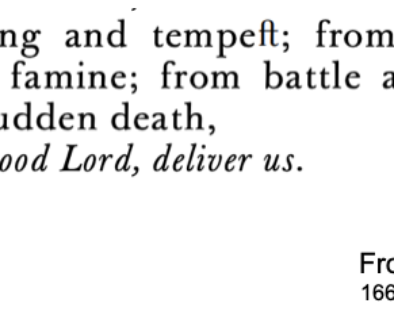Lent has begun
Lent is a season of waiting, anticipation, denial, adding on. It is our most corporate time as a universal, historic church. For 40 days (just over a tithe of the year!!), we choose disciplines and practices that prepare us to celebrate the death and resurrection of Jesus.
You will notice some differences during our Sunday worship:
- After a song of worship, we begin with a litany of penitence. The leader will read each of the 10 commandments and we will sing, “Lord have mercy upon us and incline our hearts and minds to keep this law.” Out of this reminder of the ethic that is to shape our life, we pray the prayer of confession. We begin each of the 6 weeks with a deliberate choice to face our shortcomings and intentional disobedience. It is my prayer that this will whet our appetite for grace. Self-examination is always ‘in vogue’, but only the cross has a means for us to be truly transformed.
- After the sermon, we have built a song of response around the prayers of the people.
- We are using a different Eucharistic liturgy. It is older, more robust in its theology, and longer. You will hear some words you might not immediately recognize:
- Oblation: from the Latin oblatus which means offering. On the cross, Jesus was an oblation for our sins– a full satisfaction for the penalty we deserved, a perfect offering who needed no forgiveness, a sufficient sacrifice for all of our sins. That’s what we mean by oblation.
- Procured: Yep, you probably know what this means– to obtain something. But you’ll hear me say it as I give thanks for all the benefits that Christ’s passion, death, resurrection, and ascension ‘procured’ for us. Remember, when we come to the table, we come to be reminded that Jesus has rescued us. It’s a memorial meal so that we can remember what He has done.
If you hear other words you don’t understand or find curious, post them here as a comment. I’ll answer them in the blog.
At the end, you’ll hear me say ‘we are unworthy to offer you any sacrifice, but we ask you to accept this– our required duty and service…’ The Eucharist wasn’t our idea, it was Christ’s. When I pray that prayer, I am asking God, by His Word and Holy Spirit, to make a little bread and a little wine a sacrament– a visible, tangible reminder that we have been rescued, that we have received grace. That prayer tells the story of what Jesus did and why He had to do it. Sometimes it gets a little long and the words might be unfamiliar, but it’s our story. Thanks be to God.

